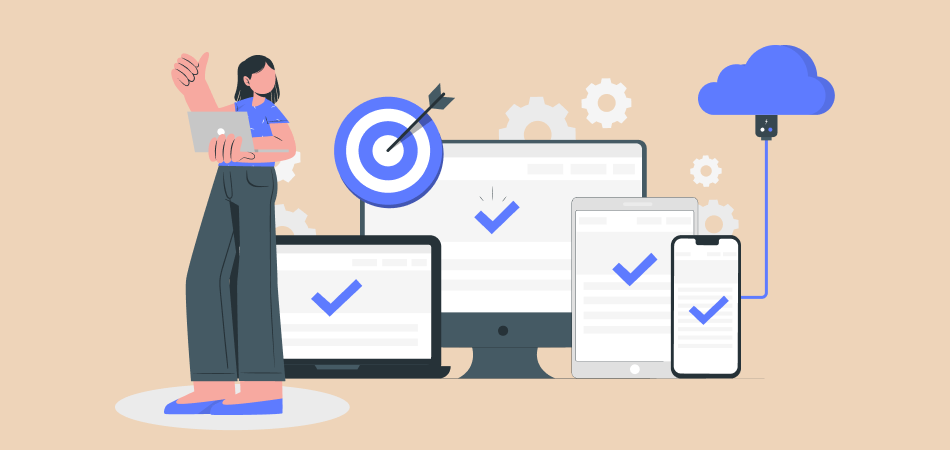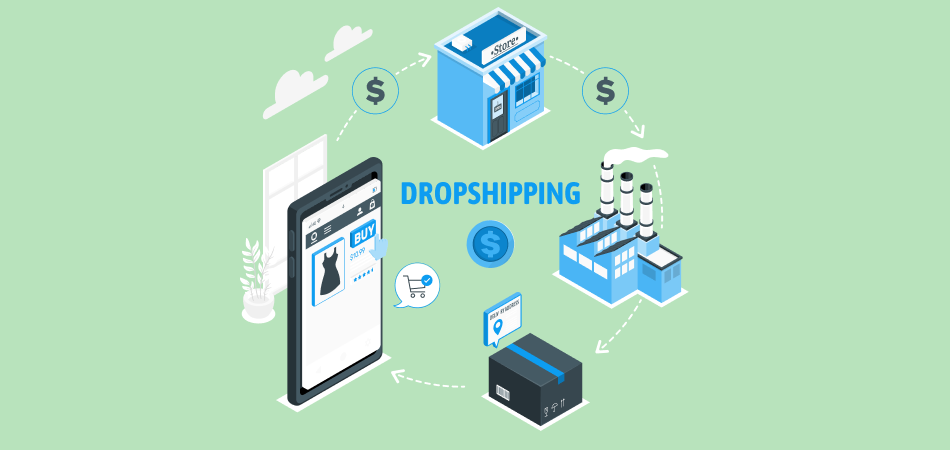Here’s Everything You Must Know about Private Label Products

Have you ever seen products in cafes, bars, hair salons, etc. with their unique labeling? Well, chances are that they could be private label products as your nearby shop might not have manufactured those goods, but only sell them under their label.
In nutshell, white label products are those that are manufactured by one brand but are sold under another brand’s name. Still confused?
Read on and get to know more about white labeling and how you can start your private label brand like a pro:
White Labeling 101: What Is It All about
White Labeling (also known as private labeling) is a popular business model in which products are originally manufactured by a third party but are sold under the brand name and label of another company.
This is unlike the original sales model in which a brand retains its identity while selling its products.
Ideally, you can find private label products on all kinds of online as well as brick and mortar stores. Let’s say you have visited a nearby hair salon and bought all sorts of products labeled under the salon’s name.
Now, it’s possible that these white label products could be manufactured by any other company and the salon would have branded them accordingly.

While private labeling is not as mainstream as the original sales model – it is on a rise. For instance, around 15% of the US supermarket sales are derived from white labeling and it is expected to grow in the future.
Pros and Cons of Selling Private Label Products
Before you start selling white label products, it is important to understand their advantages and limitations. This will help you decide if white labeling is the right business strategy for you:
- Minimum Hassle: Since you won’t be manufacturing these white label products, you can simply get in touch with a third-party company and include them in your portfolio.
- Extensive range: There are all kinds of white labeling brands that would let you come up with a diverse store, having an extensive product range.
- Control over branding: You can market the product however you like, set up any brand name, and take control of its sales.
- Margin your profit: If you want to sell more private label products, then you can organize sales or run discounts however you like.
- Customization: You can scale your white label store however you like, include any product, sell on the platform of your choice, and customize the entire marketing model.
- Manufacturer dependency: Since you are not manufacturing private label products, you would have to be dependent on the original company for their supply.
- Lack of originality: Chances are that the same product could be sold in thousands of other places, and it would be tough for your brand to stand out in the market.
- Competition: There has been a lot of competition in several white labeling sectors like snacks, utensils, and other utility products. Besides that, the industry often suffers from the growing fear of monopsony.
How to Start Selling Private Label Products: A Stepwise Approach
In the last few years, it has become easier than ever to sell white label products online. Therefore, if you also want to start your private labeling business, then consider following this approach:
Conduct a Market Research
Before you start any major business, it is important to perform extensive market research. To sell private label products, you need to explore three major verticals:
Product Supply: This will help you decide the products you want to sell, customizing fee, buying cost, and so on.
Branding: Once you have got the products, you need to know how you will customize them for your brand. It is recommended to have a rough estimate for the entire branding and packaging process in advance.
Marketing: If you are starting your brand from scratch, then you would have to spend a substantial amount on brand awareness and promotions.
Define Your Target Audience
After performing extensive research, you would know more about the market and how white labeling works. Now, you should try to understand the kind of brand you would like to create and the people you want to target your products to. It is highly recommended to come up with the target demographics and estimated details about them (like their age, location, brand preferences, and so on).
Find Reliable Suppliers and the Products to Sell
Once you know your audience, you can pick some reliable suppliers to start your business.
You can directly collaborate with a single supplier or multiple brands if needed. It is highly recommended to go with a supplier that has a specialty in selling white label products within your niche space. As an example, Wholesale Botanics is a known private label service for essential oils. It's their entire business. As an essential oil brand yourself, you'd be far better on using them for your product than a generic service that white labels multiple product types.
Besides that, you should thoughtfully pick private label products that would go with the overall tone of your brand.
Instead of picking generic products, you should cater to a specific audience that would minimize your competition and help you target leads easily.
From phone covers to fitness accessories and cosmetics to essential oils, there can be all kinds of products out there that you can sell under your brand.
You can research specific domains and pick the kind of products that would help you generate profitable results.

Create a Unique Brand Identity
Let’s say you have the right suppliers, and you know your target audience. Now, to sell your private label products, you need to create a unique brand identity.
It is recommended to take a step back and analyze your brand from the perspective of your customers. Try to ask yourself what is in your brand that separates it from its competitors.
You should try to come up with a unique appeal that should differentiate your brand from others.
Based on that, you can work on the overall look of your brand like its logo, packaging, website, and other details.
Keep Building Your Brand
That’s it! Once you have the suppliers and the brand identity ready, you can start selling your products. You can come up with your store or can sell on leading platforms like AliExpress or Amazon.
Ideally, it is all about selling an experience from your brand to your audience through your white label products.
Remember, your audience can get the same products anywhere else, but there should be a reason for them to come to your store over and over again.
You can keep working on new marketing tactics and models to generate more leads. Besides that, you can keep growing your store, diversify your catalog, and try to add value to your customers with your products.
Pro Tip: Use DSers to Create a Profitable AliExpress Dropshipping Business
You might already know that Alibaba is one of the best places to find white label product suppliers. Though, if you directly want to venture into dropshipping, then you can also take the assistance of AliExpress. For this, you can explore DSers, which is the official AliExpress dropshipping tool.
DSers will let you explore thousand of AliExpress suppliers in numerous categories, all in one place.
| Get Started Now to Grow Your Online Business with the Best AliExpress Dropshipping Tool - DSers! |
With its Supplier Optimizer feature, you can find the most profitable supplier for any product. Also, the tool has features like automatic updates of order status or syncing of tracking numbers to save your time.
You can also order products in a bulk, create custom bundles, and do so much more to organize your dropshipping store like a pro.
There you go! I’m sure that after going through this post, you would be able to know more about private label products.
To come up with a successful white label business, you need to have profitable products and create a unique brand identity that would resonate with your audience.
Besides that, you can also venture into a dropshipping business with a tool like DSers to be in direct control of your online store.













 Company
Company
 Why Choose DSers
Why Choose DSers
 Blog
Blog
 Help Center
Help Center



